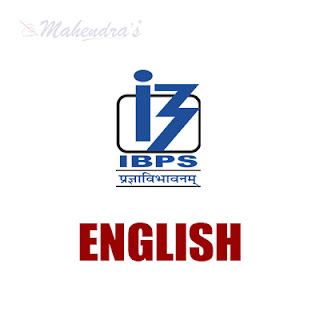
Read the following passage carefully and answer the questions given below it. Certain words are given in bold to help you locate them while answering some of the questions.
The Centre’s decision to waive import duty on wheat has predictably attracted flak. Opposition parties have questioned the move, which comes days after the government’s assertion that demonetisation of high-value currency notes did not impact the sowing of the rabi crop, with a greater area being cultivated compared to the same time a year ago. Assembly polls are due soon in Uttar Pradesh and Punjab, both large wheat-producing States, making this a plausible rallying point for the Opposition. Farmer unions have warned of dumping of wheat stock in India at a time when the minimum support price (Rs.1,625 a quintal) is higher than international prices. This, they argue, could lead to distress sales when the current crop is harvested over March-April. The government, on its part, has noted concerns about the warmer winter forecast, which could affect wheat output and trigger inflation. This February, when prices of food articles that make up 46 per cent of the consumer price index were cooling off, the government expected the trend to continue if the monsoon was normal after two years of drought. Now at year-end, following a normal monsoon, inflation remains under control but wheat prices have been moving up swiftly.
There is no doubt that fiddling too often with wheat import duties — from 10 per cent to 25 per cent, then back to 10 per cent and finally to zero, all within 500 days — sends mixed signals to farmers and traders, though the latter group will be pleased with the duty-free regime. But equally, it is necessary to change one’s mind when the situation so demands, which it currently does. A record global harvest has lowered wheat prices internationally. With a higher MSP, and speculation about a less-than-adequate harvest domestically, the government is obviously keen on avoiding a surge in inflation following the demonetisation process. With imports remaining duty-free, it is now clear to traders that hoarding reserves and profiteering from the systemic stress won’t pay for long, even though it will take a couple of months or so for the first such shipments to arrive from overseas. Farmers busy with the rabi sowing season may not rally to political provocations immediately. But by the time they harvest the crop four months from now, the Centre would be well-advised to spruce up its procurement act, and raise awareness about the MSP mechanism. A longer-term action plan is needed to increase India’s wheat yields, which in most States are lower than in China and Bangladesh.
Q.1. Farmer unions have warned of dumping of wheat stock in India at a time when _______
(1) the minimum and maximum price is the same as international prices.
(2) the minimum support price is as high as international prices.
(3) the minimum support price is higher than international prices.
(4) the minimum support price is lower than international prices.
(5) the maximum support price is higher than international prices.
Q.2. Which of the following statement/s is/are NOT TRUE in context to the passage?
(A) A record global harvest has lowered wheat prices only nationally.
(B) Farmers busy with the rabi sowing season may not rally to political provocations immediately.
(C) Assembly polls are due soon in Uttar Pradesh and Punjab, not making a plausible rallying point for the Opposition.
(1) Only B
(2) Only C
(3) Only B and C
(4) Only A
(5) Only A and C
Q.3. The government has noted concerns about the warmer winter forecast, which _____
(1) could help wheat output.
(2) could destroy the crop.
(3) could increase wheat production.
(4) could not affect wheat output and trigger inflation.
(5) could affect wheat output and trigger inflation.
Q.4. Which of the following statement/s is/are TRUE in context to the passage?
(A) The Centre would be well-advised to spruce up its procurement act, and raise awareness about the MSP mechanism.
(B) Now at year-end, inflation remains under control but wheat prices have been moving down swiftly.
(C) The Centre’s decision to waive import duty on wheat has predictably attracted flak.
(1) Only A
(2) Only C
(3) Only A and C
(4) Only B and C
(5) All A, B and C
Q.5. With a higher MSP, and speculation about a less-than-adequate harvest domestically, the government is obviously keen on _______
(1) creating an aura to the demonetisation process.
(2) not avoiding a surge in inflation following the demonetisation process.
(3) maintaining a surge in inflation following the demonetisation process.
(4) avoiding a surge in inflation following the demonetisation process.
(5) hoarding reserves and profiteering from the systemic stress.
Q.6. Which of the following is possibly the most appropriate TITLE for the passage?
(1) Free flow of wheat
(2) Wheat output and trigger inflation
(3) China and Bangladesh
(4) Farmer union
(5) Awareness about the MSP
Q.7-8. Choose the word/group of words is most SIMILAR in meaning to the word/group of words printed in bold as used in the passage.
Q.7. ASSERTION
(1) desertion (2) declaration (3) silence (4) quiet (5) adhered
Q.8. FIDDLING
(1) claim (2) competent (3) trivial (4) work (5) prevailing
Q.9-10. Choose the word/group of words is most OPPOSITE in meaning to the word/group of words printed in bold as used in the passage.
Q.9. PROVOCATIONS
(1) compliment (2) insult (3) grabber (4) injury (5) democratic
Q.10. WAIVE
(1) abandon (2) allow (3) reserve (4) delay (5) approve
ANSWER
1. (3) 2. (4) 3. (5) 4. (3) 5. (4) 6. (1) 7. (2) 8. (3) 9. (1) 10. (5)





0 comments:
Post a Comment
MAHENDRA GURU